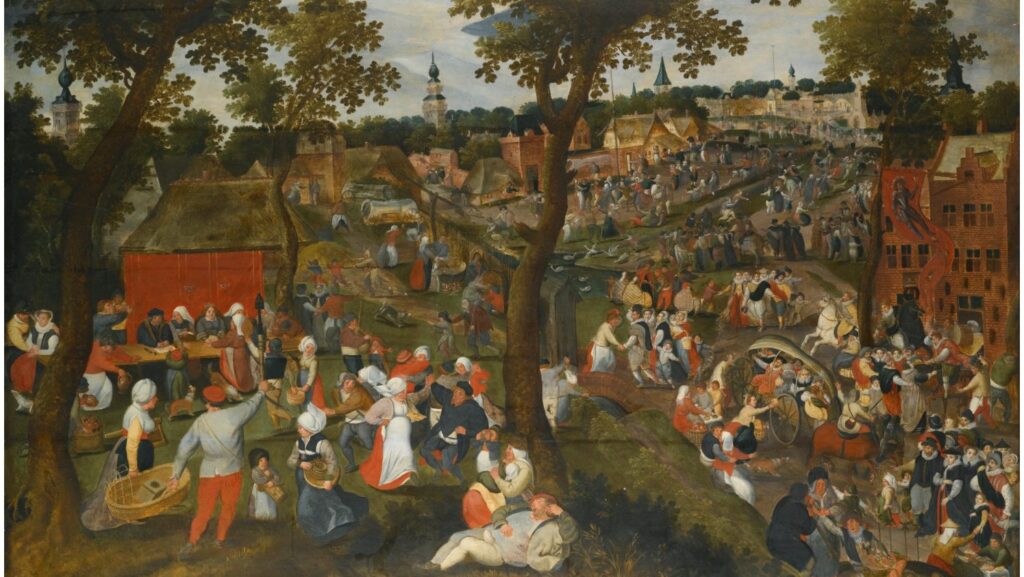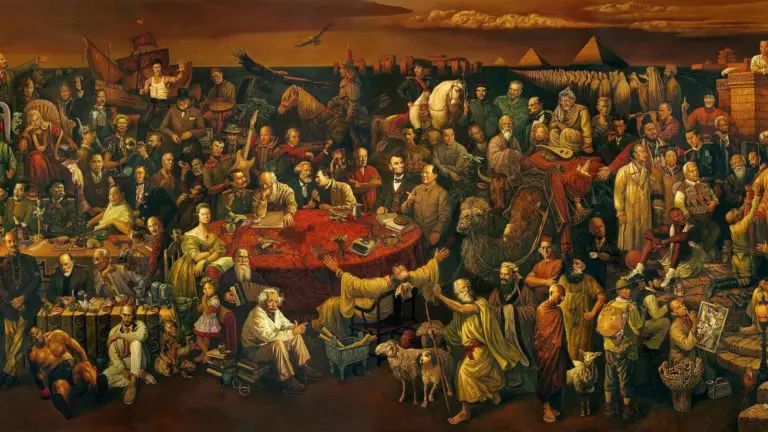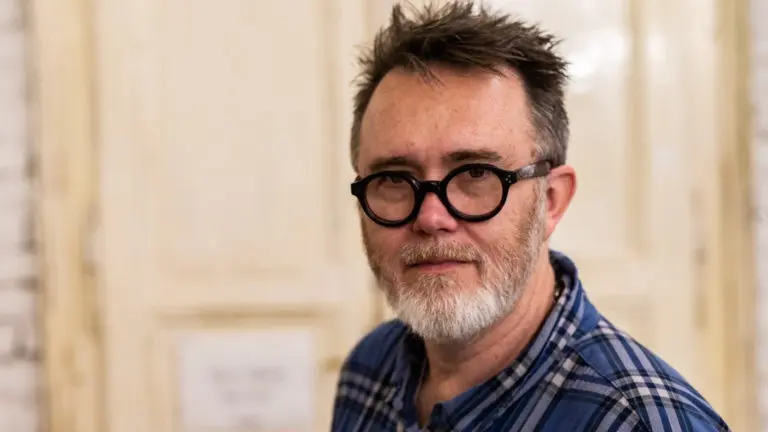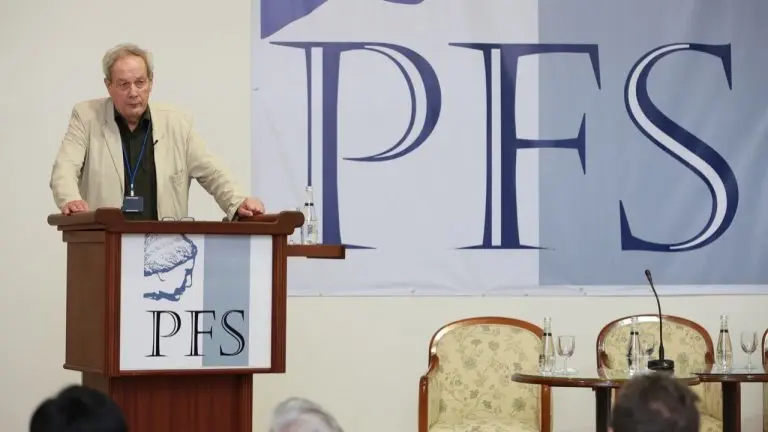Recently, my family suffered the devastating blow of losing my aunt to cancer. The loss was especially painful because she was no ordinary woman: a matriarch of the clan in the good old Wodehousian style, she organised family reunions and Christmas gatherings during which she shepherded children and grandchildren, nieces and nephews, and provided food and drink sufficient to sate even the greediest nibbler of cookies and cakes. Each year, Bilbo Baggins’ magnificent birthday party was put in the shade by these real-life gatherings, held at my aunt’s familial home, itself surrounded by the expansive, landscaped, verdant gardens that she had painstakingly crafted and tended by hand.
The grief of her loss was not only a private grief, although it was that as well. The community was also struck by her loss, for my aunt had been a member and a leader in the Girl Scouts, the Lionesses, the Kiwanis, the Parent-Teacher Association, and Citizens for Better Education. She was a person on whom communities, individuals, and families could always rely to do the needful. Indeed, when I was young and my parents first drew up their will, my aunt was the person chosen to be our guardian in the event that something terrible was to happen.
Communities need invested members: those who can build and tend the social garden that is the community itself. And, as anyone who has tended a garden knows, the task is difficult. To invest time in community building is ‘unpaid labour,’ in the strictly remunerative sense, but the benefit to the community is also a benefit to the individual, who is a part of that community. Looking around, one can see that the social fabric of many formerly healthy communities is now frayed: parades that had once been well-attended are now smaller-scale affairs if they have not been cancelled entirely, and the school marching bands dwindle in membership. Local celebrations—apple festivals, cherry festivals, strawberry festivals, and the like—are in many places being struck from the calendars. In today’s globalised world, civic pride—pride in one’s immediate, local community—seems to have little place. Few people have time for the struggles of Mr. Smith around the corner when the internet is insistently informing them about the plight of thousands of people half a world away.
To a great degree, the internet’s globalising force has been the death knell for many communities. When people are encouraged to look outwards and to give their time and money to causes far afield, the local communities—in which those people live—have found themselves deprived of the support they once enjoyed. But it is no good blaming the internet alone, for the fault lies not in our stars but in ourselves: the internet may have placed these global matters before us, but it is we who have chosen—out of the best of intentions, no doubt—to prioritise the global and the intractable ahead of the immediate, local communities in which we live and where we can do the most good.
This is by no means to suggest that it is wrong to have concern and to support charity for those abroad, but rather to observe that such investments should not come at the cost of improving one’s local community. And, because the vast majority of us have limitations on our time or money (or both), we should first give our attention to our families, then to our local communities, and only then outwardly, in decreasing order of priority as we move further afield. This is not selfishness, but rather due reciprocity—a hierarchy that observes the duty we have to those things that have most formed us and that most affect us. It is at least partially for this reason that Voltaire—no arch-traditionalist, he!—has Candide learn, after much tribulation, the importance of tending one’s garden.
Communities, for their part, do well when they recognise the effort undertaken to support them. It is right and just that the most respected civic leaders should be memorialised in statues, monuments, scholarships, and awards. It is likewise important that those be maintained so that present members of the community will trust that their own efforts will not be forgotten or repudiated. If the community is encouraged to value the efforts made on its behalf and to remember the same, then the work made on its behalf is far more meaningful. Human beings above all desire to put their time and effort into enduring things, which is why our wider culture must encourage stewardship of what has been entrusted to us. Iconoclasm and the desire to destroy the past so that gaudy novelty may be erected in its place both reinforce the sense of existential futility that seems to pervade modern culture. There seems to be little point in spending time on projects that no one appreciates and which will be undone and forgotten in short order.
The compact that exists between individuals and their communities is bidirectional: the community must respect and honour its exceptional members, but there is a duty owed by the individual because he has been formed by the community, often in ways that are invisible. One may, as I did, grow up in a small town in which there are well-attended parades. Even those who do not attend the parades are nevertheless shaped by the community valuing the parades, because those values—of community service, of communal celebration, of certain forms of civic pride—suffuse other aspects of the community and blend into other attitudes about the care of the community. For example, vandalism and graffiti are practically non-existent in my hometown. I am convinced that this is not entirely unrelated to the community’s emphasis on a strong marching band programme and enormous civic pride in local events—including a great many parades, art festivals, and displays of civic beauty.
Care for our communities is born out of a love for them that begins in the home, with the family. This love radiates outward through the circles of community in which we participate and by which we are formed. We love our families because they form us most of all, and we love our communities because they, too, have a significant hand in forming us. To fulfil our commitments to these circles of due reciprocity—by giving them our respect, time, effort, and love—is to acknowledge the indisputable fact of their role in making us who we are. And it is to preserve the efforts of those who have gone before us in making those sacrifices themselves, so that what they built with love will not have been wholly in vain but will rather endure to shape new and grateful generations to come.





